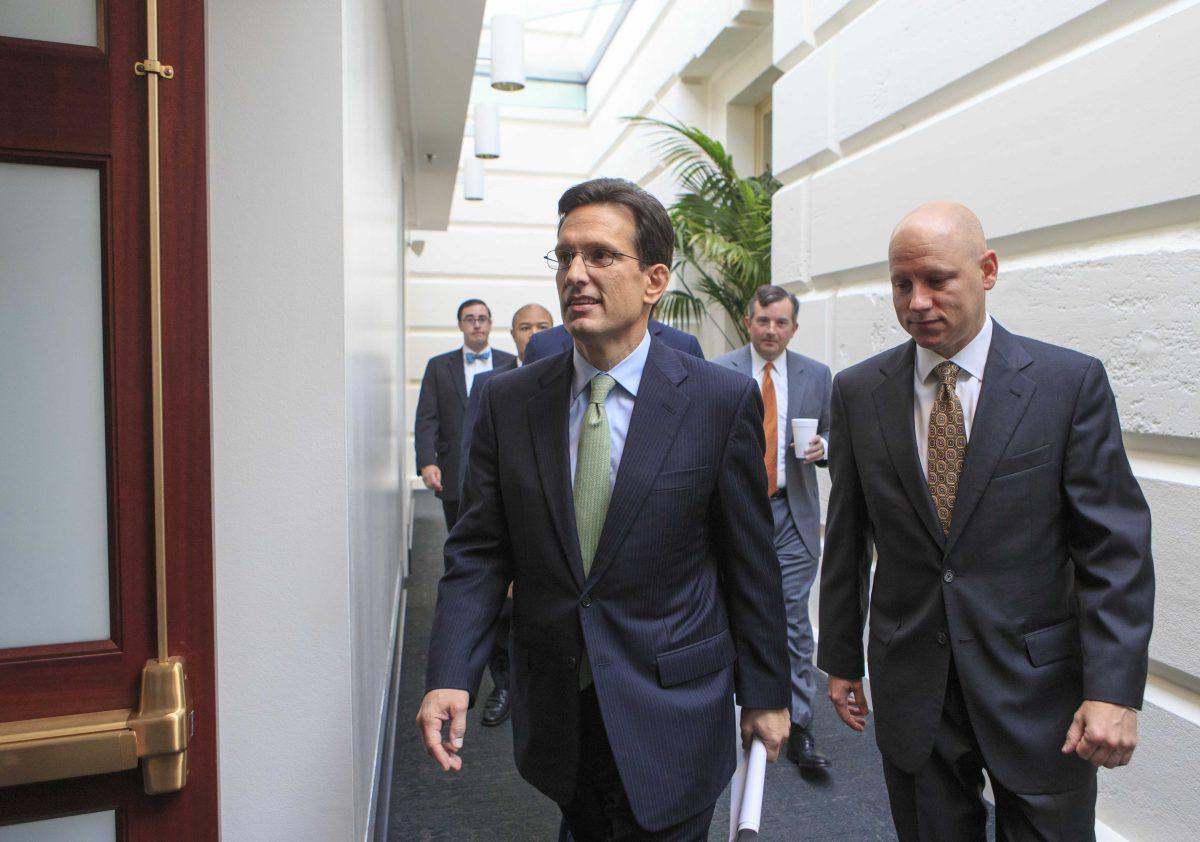Ever since Republicans took control of the House of Representatives in 2010, our political system has essentially functioned like the iconic 1993 American comedy “Groundhog Day.”
In arguably one of his best performances, Bill Murray plays an arrogant Pittsburgh TV meteorologist who finds himself in a time loop — repeating the same day again and again — during an assignment to cover the annual Groundhog Day event.
Congress has fostered a similar environment in which déjà vu and dysfunction permeate throughout the United States Capitol.
Whether the issue is raising the debt ceiling — which directly affects students’ bottom line — or passing continuing resolutions to fund most government agencies, or voting 41 times to repeal Obamacare, Congress finds itself in the same short-term mindset, operating without a well-thought-out plan.
The U.S., just like any business or family, can’t prosper without a comprehensive strategy for success.
Our nation’s perpetually high unemployment rate, coupled with low economic growth since the 2008 financial crisis, clearly demonstrate that our problems stem from political paralysis.
Unfortunately, it looks like Congress, particularly the most fiscally conservative members in the House, is gunning for another “wash, rinse and repeat” cycle over next month’s debt ceiling debacle.
But why should a University Student care whether or not Congress raises the debt ceiling?
To understand the monumental importance first requires a little background:
The debt ceiling, which is currently set at $16.7 trillion, is a cap on the maximum amount of debt the federal government can legally issue at a point in time to pay for our nation’s expenses.
While we are projected to hit our $16.7 debt ceiling in mid-October, imagine we hit it in August instead, for data purposes.
According to a recent Wall Street Journal report, the U.S. collected $185 billion last month in revenue and logged $333 billion in spending, resulting in a $148 billion deficit. This is, by the way, the lowest budget deficit since 2008.
Now, if we pretend Republicans and Democrats failed to raise the debt ceiling in August, that would mean the government would have to default on about 45% of its obligations.
This would render some pretty unpalatable options.
The U.S. would likely be able to cover the interest owed to debt holders, Social Security, Medicare, Medicaid, defense spending, education and a host of smaller income-transfer programs, but doing so would require defaulting on everything else.
According to Ezra Klein of The Washington Post, this is what would close: the FBI, prisons, the courts, tax refunds, the Federal Aviation Administration, national parks and food inspections.
Doesn’t sound too great, does it?
And then there’s also that whole “damaging the economy” factor.
Essentially, all stocks, bonds, real estate and other financial products are based on the interest rate the U.S. government pays to its bondholders. U.S. bonds are called “Treasury Bills,” and are considered the safest investment in the world.
Also, all other nations’ interest rates for their debt are based off of the U.S. Treasury rate.
If we defaulted on our debt, investors would significantly increase the rate for the U.S. Treasury bill, causing mortgage rates, credit card rates and other complex financial securities to swell.
This would cause enormous damage to our economy. For one, the housing market would be crippled, as the demand for buying would plummet because of higher rates.
Additionally, stock prices have an inverse relationship with interest rates. A spike in Treasury rates would likely cause the stock market to suffer a crash, with a serious amount of individual and corporate wealth lost.
As a student, I really wouldn’t like to graduate in a job market fraught with corporate downsizing and high interest on debt.
Speaking of debt, thanks to a bill passed this summer by the Senate, student loans are now tied to 10-year Treasury rates.
So, yes, a default on government debt directly equates to more money coming out of University students’ pockets.
And that alone is why you should be concerned about whether the debt ceiling is raised.
Opinion: Debt ceiling debate affects students’ bottom line
By Jay Meyers
September 17, 2013
In this Sept. 10, 2013, photo, House Majority Leader Eric Cantor, R-Va., walks to a Republican strategy session at the Capitol, in Washington. A revolt by tea party conservatives forced House GOP leaders on Wednesday, Sept. 11, to delay a vote on a temporary spending bill required to prevent a government shutdown next month. The plan by top Republicans like Cantor is designed to keep government agencies running through Dec. 15. Cantor’s office announced the delay. (AP Photo/J. Scott Applewhite)





